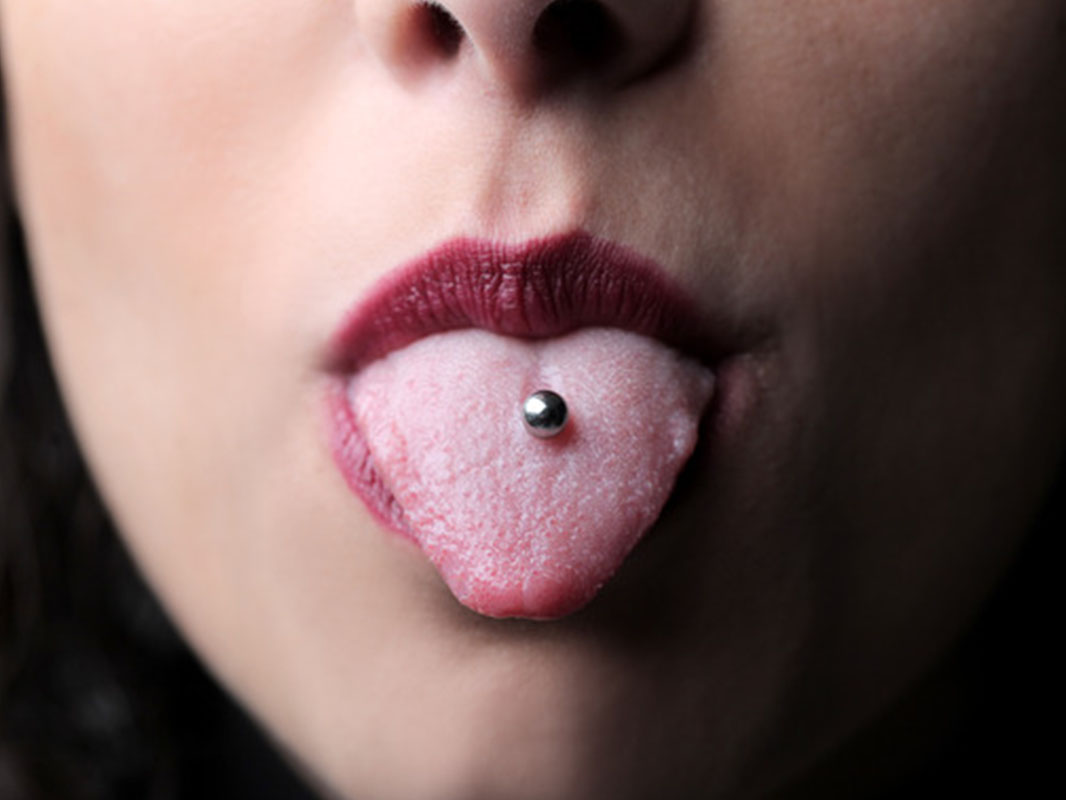Oral Piercings: The Hidden Risks to Your Oral Health


Following are a few ways that piercings can negatively affect your oral health. Some might surprise you.
Untimely Tooth Wear
Having piercings can wear down your dentition. Many people develop a habit of making contact between a piercing’s structure and teeth. Some might click their tongues, where their tongue piercing habitually taps against their teeth. Others might turn their lips inward so that lip rings make contact with tooth structure.
When our teeth make contact with hard objects, it can lead to permanent damage. Metal piercings can wear cracks in tooth enamel, which will worsen over time. If your teeth are already weakened by acid exposure or decay, you run the risk of breaking or cracking a tooth.
If you decide to wear piercings in spite of these risks, we recommend taking great care not to develop habits that involve tapping piercings against your teeth.
Increased Risk for Infections
Having piercings increases your risks for bacterial and fungal oral infections. This is because surfaces of the lips, the tongue, and the linings of the lips and cheeks can be exposed to oral bacteria that normally wouldn’t be present without a piercing.
If you have piercings, it’s important to practice vigilant oral hygiene to control bacterial growth in the mouth. You should brush at least twice a day for two minutes each time. When brushing, be sure to brush your tongue, the roof of your mouth, and the gums. You should also floss once per day, every day.
Swallowing Hazards
Oral piercings present swallowing hazards if they come loose. If you’re eating or sleeping and a piercing comes loose, you could easily swallow or choke on it. Be sure your piercings are fastened appropriately especially before meals and before bed.
If you have questions about your oral health, call our practice to schedule a consultation with our dentist.